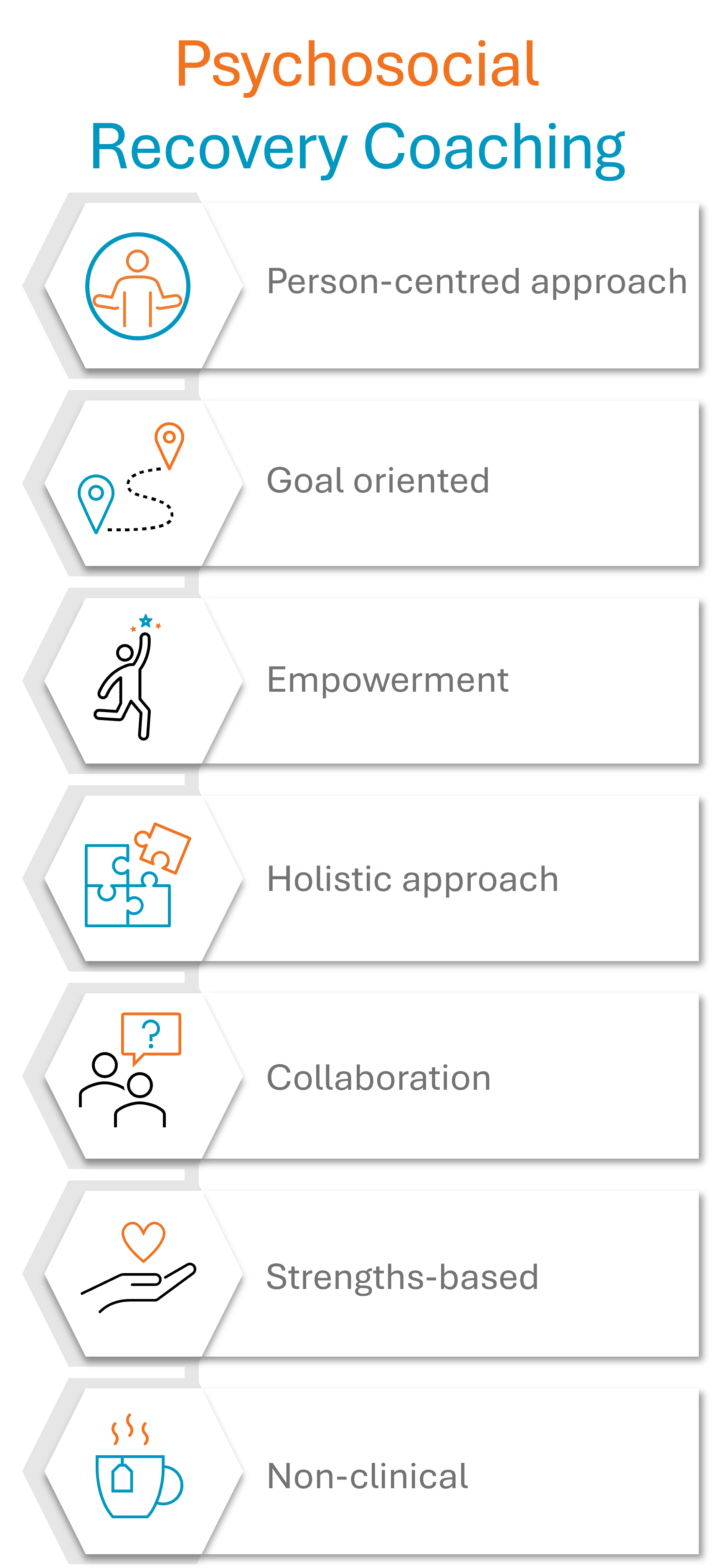Person-Centred Approach:
Recovery coaching is person-centred, meaning it recognises the unique experiences, strengths, and goals of each individual. It tailors support to the person's specific needs rather than adopting a one-size-fits-all approach.
Goal-Oriented:
Recovery coaching typically involves setting and working towards specific, achievable goals. These goals can be related to various aspects of life, such as relationships, employment, education, or personal development.
Empowerment:
The coaching process is designed to empower individuals by fostering a sense of agency and self-determination. It encourages individuals to take an active role in their own recovery journey.
Holistic Approach:
Psychosocial recovery coaching takes a holistic view of a person's life, considering not only mental health but also social, emotional, and physical well-being. The aim is to address multiple dimensions of a person's life to support overall recovery.
Collaboration:
Recovery coaching involves a collaborative relationship between the coach and the individual. The coach provides support, guidance, and encouragement, but the individual is seen as the expert on their own life.
Strengths-Based:
The approach is often strengths-based, focusing on identifying and utilizing the individual's strengths and resources to facilitate positive change.
Non-Clinical:
Recovery coaching is distinct from clinical therapy or counseling. While therapists address mental health issues and emotional challenges, recovery coaches primarily focus on helping individuals build and work towards their goals in various life domains.


